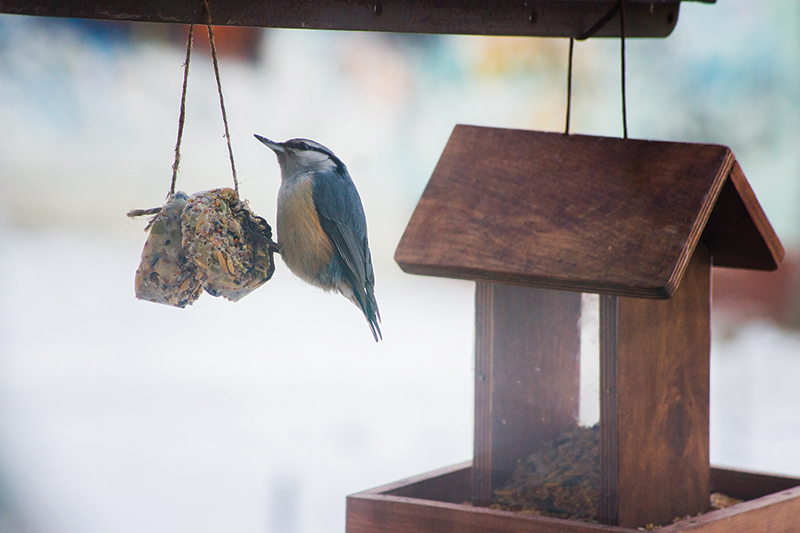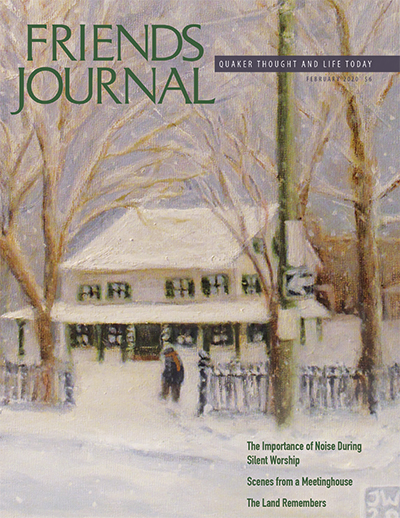
The Evolution of a Prayer Practice
I once heard about a school where every student was required to write, at the top of every page of work, the Latin initials meaning “For the Greater Glory of God.” I thought this was hilarious—the idea that the ink-stained, misspelled scribblings of a bunch of kids had anything to do with the greater glory of God.
But I’ve had a change of heart.
A couple of years ago I adopted a new-to-me prayer practice. It’s actually a very old practice, honed over centuries in monasteries and caves and in the hearts of earnest seekers of many stripes. Like many things honed over centuries, it initially seemed stodgy to me, lacking sparkle and zip and novelty. Until I tried it. Now, after a couple of years of faithfulness to this particular form of prayer, I’m compelled to admit that it is the single most robustly useful prayer practice I have ever tried (and I have tried many).
The practice involves a deceptively simple four stages. You start with gratitude. This is easy for me; I have a lot to be grateful for. And I enjoy thinking up new things beyond the obvious: things like how the sun makes a perfect shadow of the plant on the opposite wall, and how the nuthatch poses so elegantly on the bird feeder, and that perfect triplet of notes in a piano piece by Erik Satie.
From gratitude (a comforting emotional and spiritual cushion for what comes next) I move into confession. Initially I had to take a deep breath and force myself to do this. It didn’t seem like much fun recounting my failings: how I snapped at someone unnecessarily, how I made something all about me that wasn’t, my reluctance to reach out to someone needy, my putting off some task or other, my holding onto anger and resentment about a difficult person, my repeated failures to transcend self-interest and ego.
But despite the discomforts and hard edges of doing this daily confession, I found that it did move perfectly and productively into the next phase: petition. I sure knew what I needed to ask for! It seemed that a great deal of what I needed to ask for was a change of heart about things. And I was startled at the extraordinary power of asking for this change of heart. Sometimes the best I could manage was “Please, God, help me to want to forgive this person, because right now all I want to do is indulge my anger!”
But over and over, I found that when I prayed for a change in my heart, that change came. This frequent prayer started rearranging much of the furniture of my heart and mind. Hard things became sources of gratitude, for example. That difficult person at work became the Wondrously Efficient Illuminator of My Personal Hot Buttons That Needed Deactivating! That long period of waiting and painful uncertainty about a leading became gratitude for having had the necessary time to tend to the soil in my heart so that when the call came I was actually ready for it.
But over and over, I found that when I prayed for a change in my heart, that change came.
Petition transformed my relationship with confession. Confession went from being a painful weight of self-dissatisfaction—the Bad News Daily Register—to an exit from the actually more painful weight of greed, self-absorption, fear, impatience, ego, anger, judgment, and all the other things that cluttered up my soul on an average day.
Now that I have experienced the relief that the combination of confession and petition can bring, I am usually eager to get on with these parts of my prayer practice. I find that the old saying is astonishingly, powerfully true: the light that illuminates your sin also shows you the way out of it. Really! Wow! (If you dislike the word “sin,” you might like to think of it simply as whatever distances you from or closes you to the Spirit.)
By the time I get to intercession (praying for others), I often feel as light as a bird, my cup overflowing, with spiritual abundance to share. I’m not usually reaching out from a depleted well. (And if I am, that is illuminated by what comes before.) I often find that the prior tilling of the ground with gratitude, confession, and petition turns intercessory prayer into a conviction that I need to do something, not just pray. I also find that I am given the emotional and spiritual resources to do this. Mostly, I am given not tiring burdens but happy errands. So prayer often generates a call, a visit, an apology, an invitation, or some other expression of love. And voilà! Boy, do I find that I am enjoying people!
But the biggest practical thing of all that has come out of this prayer sequence is what has ended up happening in the petition phase. Some months ago, it started evolving into a to-do list. My petitions to God to soften and open my heart and mind and guide me ended up generating lists of all sorts of things I needed to do once I had been so softened and opened. Now I don’t mean to suggest that these tasks are necessarily exalted or that I wouldn’t have done them before. They are often as mundane as “empty the fricking compost!” or “invite so-and-so to dinner today” or “excavate the Augean stable that is your desk.” What’s new is that they come out of gratitude, confession, petition, and intercession. It makes all the difference!
My petitions to God to soften and open my heart and mind and guide me ended up generating lists of all sorts of things I needed to do once I had been so softened and opened.
When I am grounded in gratitude, I’m more likely to put things that bring me delight on my to-do list: things like going kayaking or biking. That keeps joy and balance in my life. When my to-do list grows out of confession, the things I tend to procrastinate about are laid bare and illuminated. When my list is grounded in petition, I get the boost I need to take these tasks on; I am given the healing or fortitude or ordinary discipline they require. When I’m grounded in intercessory prayer, I see more clearly what I am called to do for others but with a balance that also takes into account my own needs.
I’ve learned to leave some blank lines under the petition heading in my journal, because after I do intercession there’s a good chance I’ll need to go back and add something. But I’m not given more than I can reasonably do, despite the fact that the work that needs to be done is never-ending and infinite. My to-do lists these days are, above all, balanced and finite. They do not cause overwhelm or dread or unsustainable busyness.
This is a relief, because I recently lost my paid job. I wondered nervously for a while how I was going to manage my time and my welter of commitments without the scaffolding of structure. Well, I’m here to say that most days I have a robust sense of purpose—my to-do list—by the time I’m done with my spiritual practice. And when I’m heading off to bed, a private sense of satisfaction. Mission accomplished! Even small tasks often feel surprisingly meaningful when they grow out of this soil, and I celebrate as I check things off. Today’s to-dos become ta-dahs! I like to think the Spirit is celebrating these small triumphs with me.
I can now say that my journal is almost entirely prayer and that the boundary between my spiritual practice and the rest of my day is hopelessly blurred. I often return to my journal during the day to check things off, reconsider something, add an unexpected detour or inspiration, record a bonus accomplishment, or regroup after a disappointment or failure. What part of my life does not fit into the categories of gratitude, confession, petition, or intercession, and the to-do lists that arise from that? My to-do lists grow in the deep, friable soil of a joyful prayer life, and represent some of its fruits. Is this sort of what “pray without ceasing” looks like?
I don’t know, but goodbye; I am off to empty the compost and clean my desk for the greater glory of God!

Coda: Sometime after submitting this article, the to-do lists that had sustained me so beautifully for months became oppressive. They turned into monsters and dug their claws into me. Suddenly they felt like power over me rather than lift under me. They were a perfect part of my spiritual practice . . . until they weren’t. Like the Dalai Lama says, maybe we have to learn the rules so we can break them properly! Maybe a good spiritual practice is one that becomes a trampoline. Boing! Launched to the next stage!




I am tying to embrace a big change in my life. A change that I did not ask for and am not at all happy with!
And In addition, did not see coming! I had a fall. I am 88 and falls are not uncommon in my age group. It has turned my life upside down. I am struggling with making peace with this new reality. I know I will, but nonetheless….it is difficult.
I so hope you can find some ease in this difficult situation! That sounds very hard. My best wishes to you, Eugene! Intercessory prayer coming your way!
Could prescription(s) you are taking be implicated in your fall? My P.A. took me off of Amlopidine. I went back on at a half-dose a day. My tremors and instability appear to have disappeared (so far)!
This is such an interesting article. Thanks Kat for some good suggestions.
Thank you, Kat Griffith, for this joyful ode to your spiritual practice! As a journalling practice, and/or a way to open to the Light in Meeting for Worship, I am resolved to try it. Thank you!
Best of luck! I hope you find something good in it! I find that the longer I do it the better it gets in some ways. It’s been a couple of years now, and it hasn’t gotten tired. My best to you!
The Coda left me hanging, eager to read the next episode.
God one. Prayers move mountains. Be blessed.